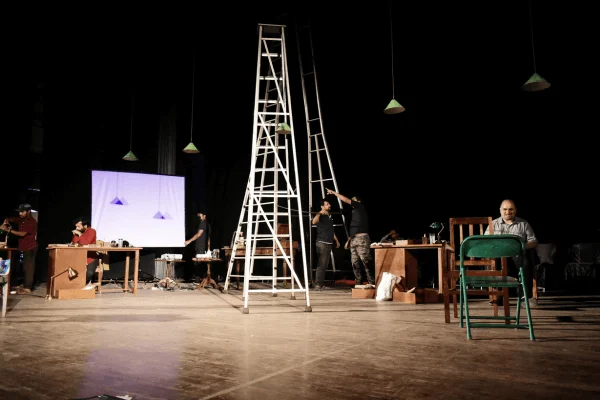Assam, a land of diverse cultures and rich heritage, boasts a theatrical tradition that reflects the vivid tapestry of its history. Assamese theatre has evolved over the years, blending traditional forms with contemporary influences to create a unique performing arts landscape. In this exploration of Assamese theatre, we delve into its past, examining the roots that have shaped its present.
The Historical Tapestry
Early Influences and Folk Traditions
Assamese theatre traces its origins to ancient times when performances were deeply rooted in religious rituals and community celebrations. The influence of Sanskrit drama from neighboring regions, coupled with local folk traditions, laid the foundation for a distinctive theatrical culture. The Bhaona, a traditional form of Assamese one-act play, emerged as a key component, incorporating mythological narratives and religious themes.
Bhakti Movement and the Ankiya Nat
The Bhakti movement in the medieval period left an indelible mark on Assamese theatre. Srimanta Sankardev, a saint-scholar, introduced the Ankiya Nat, a form of one-act play, to propagate religious teachings. This marked a significant departure from the conventional, setting the stage for a unique synthesis of devotion and drama. The Ankiya Nat, with its distinctive Sattriya dance form, continues to be performed in the religious institutions called Satras.
The Contemporary Stage
Modern Influences and Social Themes
As Assamese theatre progressed into the modern era, it absorbed influences from Western drama and began addressing contemporary social issues. The plays started reflecting the changing dynamics of Assamese society, exploring themes such as identity, migration, and social justice. Playwrights like Munin Barkotoki and Phani Sarma pioneered this shift, contributing to the evolution of Assamese theatre.
Experimental Theatre and New Narratives
In recent decades, Assamese theatre has witnessed an influx of experimental forms and new narratives. Young playwrights and directors are pushing boundaries, exploring unconventional themes and narrative structures. The intersection of traditional art forms with contemporary storytelling has given rise to a dynamic and eclectic theatre scene, challenging both artists and audiences.
Culture Unveiled
Assamese Theatre and Cultural Identity
Theatre in Assam serves as a mirror reflecting the cultural identity and ethos of the region. It goes beyond entertainment, playing a crucial role in preserving and promoting the rich cultural heritage of Assam. The linguistic diversity, vibrant costumes, and traditional music embedded in performances contribute to the uniqueness of Assamese theatre.
Festivals and Celebrations
The celebration of theatre is deeply ingrained in the cultural calendar of Assam. Festivals like the Bohag Bihu and Raas Leela witness the vibrant showcase of traditional and contemporary plays, fostering a sense of community and cultural pride. These events serve as a platform for emerging talents to showcase their skills and contribute to the legacy of Assamese theatre.
To delve deeper into Assamese theatre, explore our blogs on Assamese Cultural Heritage and Tradition Meets Innovation. These insightful pieces provide a comprehensive understanding of the cultural nuances that define Assamese theatre.
FAQs
Q: How has Assamese theatre evolved over the years?
A: Assamese theatre has evolved from its roots in religious rituals to embrace modern influences, addressing contemporary social issues.
Q: What is the significance of the Ankiya Nat in Assamese theatre?
A: The Ankiya Nat, introduced by Srimanta Sankardev, holds cultural and religious importance, blending devotion with drama.
Q: How does Assamese theatre contribute to cultural identity?
A: Assamese theatre serves as a mirror reflecting the cultural identity of the region, preserving and promoting its rich heritage.
Conclusion
In the grand tapestry of Assamese theatre, each performance is a brushstroke, adding depth and vibrancy to the cultural canvas. From ancient rituals to modern narratives, this dynamic art form continues to captivate audiences and contribute to the cultural legacy of Assam. Embrace the magic of Assamese theatre, where tradition and innovation perform a mesmerizing dance on the stage of cultural heritage.



